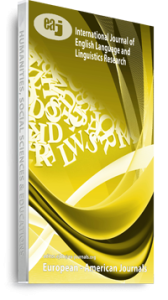Nigerian English has been recognized as a distinctive variety of world Englishes. However, descriptive analyses and documentation of what constitute standard and non- standard Nigerian English have not been purposefully established. This study undertook to analyze lexical deviations in Popular Nigerian English (PNE) using Adesanoye’s (1973) Varieties One and Two exponents. The study assesses the national and international intelligibility of lexical peculiarities in Popular Nigerian English and also determines the factors responsible for the peculiarities. Data were collected from four hundred students and two hundred civil servants who have received formal education in the English language. The subjects were Primary school graduates, Junior Secondary School graduates and Senior secondary school graduates exemplifying Variety One exponents. The Second Year undergraduates and the Civil servants with OND or NCE certificate exemplified Variety Two exponents. The subjects were selected by a Stratified Random Sampling Technique (SRS) and our focus is on Varieties One and Two exponents. These are PNE writers. Four hundred essay scripts and two hundred letters written by the subjects were read. The distinctive PNE forms that have high frequency of occurrence and wide distributions in the corpus were analyzed. A quantitative approach using frequency count and simple percentages was adopted in the analysis of data. The study revealed that Popular Written Nigerian English deviates from SBE at the lexical level. The lexical deviations were found to be widespread and regular. Again, the study revealed that popular written Nigerian English is intelligible both nationally and internationally at the lexical level when examined in contexts. The forms which emerged were as a result of the socio-linguistic realities of the Nigerian environment and culture.
Keywords: Intelligibility, Lexical Deviations, Nigerian English

